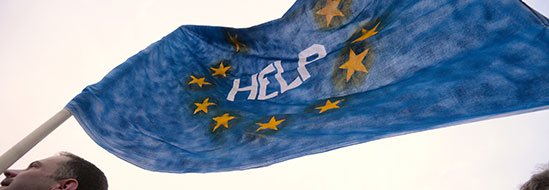About this report
The report examines how the European Union upholds its commitment to press freedom in its interaction with member states, international bodies, and strategic partners. It examines the impact that repressive legislation in member states has on journalists, how calls for wider surveillance and governance in the wake of recent terror attacks risks muzzling the independent press, and how the EU has failed to take strong action against member states that backtrack on their commitments under the EU Charter for Fundamental Rights.

This report was written by Jean-Paul Marthoz, CPJ’s EU correspondent. Marthoz is a Belgian journalist and longtime press freedom and human rights activist. He teaches international journalism at the Université catholique de Louvain in Belgium and has reported from many countries for the Brussels daily Le Soir and the quarterly Enjeux internationaux. He is vice-chair of the advisory committee of the Europe and Central Asia division at Human Rights Watch, where he was European press director from 1996 to 2006. He is the author and co-author of around 20 books on international relations, human rights, and journalism.
Geoffrey King, CPJ’s technology program coordinator, contributed the sidebar, In times of crisis, press freedom curtailed, and assisted with research for the Digital Europe chapter. Nina Ognianova, CPJ’s Europe and Central Asia program coordinator, and Muzaffar Suleymanov, CPJ’s Europe and Central Asia research associate, contributed research for this report. Lydia Tomkiw, CPJ’s 2015 Google fellow, contributed research for the graphics. The report and graphics were designed by John Emerson and SooYoung VanDeMark.
This report was made possible thanks to generous support from the Adessium Foundation.
The summary is available in Arabic, French, German, Hungarian, Russian, Spanish, and Turkish.
The report recommendations are available in Arabic, French, German, Hungarian, Russian, Spanish, and Turkish.